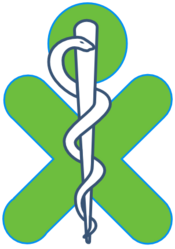Health Jam
<imagemap> image:Olpc_logo.jpg|374px|center rect 1 1 374 123 One Laptop per Child desc none </imagemap>
In A Nutshell
Health Jam Seattle<br\> Where: University of Washington<br\> When: April 18-20, 2008<br\> Goal: We're doing intensive project sprinting on hardware/software/content development for the TeleHealth Module and other Health related activities with the goal of having local health professionals test them in a mock "clinic" on the final day.
What is a Jam?
An OLPC Jam is a content creation crunch that gets participants from idea to reality in just a few days. By the end of the Jam, you'll have something finished to test with local schoolchildren and health professionals. It's a great way to get started developing for OLPC. Click here to learn more.
Introduction to the Health Jam
About OLPC
The One Laptop Per Child project is a non-profit based out of Cambridge, MA, with many volunteers in grassroots groups across the world. The goal of OLPC is to improve education in the world's least developed countries. The method is a low cost educational laptop for constructionist learning - but "it's an education project, not a laptop project," and that's something we always have to keep in mind.
About OLPC Health
The Health group at OLPC is an interdisciplinary group working on medical-related projects associated with the XO, including software, hardware, and content. Health projects can be a local grassroots undertaking, a student group project, a pilot implementation, a global community creation-sprint weekend - we cut across geographic, disciplinary, and institutional boundaries to help all health-related OLPC work move forward. Our basic premise is that existing Healthcare infrastructure in the countries with XOs could be extended and supported by using the XO.
The Health group is working on three main areas: Content, Software and Hardware. In content, we are working with several Healthcare organizations that have already created basic health, sanitation, and dentistry education materials in several languages. Some of this material is printed, some digital, and we are working on converting it to easily displayable and translatable formats. In Software, we're working to create medical diagnostics transmission protocols to allow XOs to send data to remote doctors and specialists for analysis in real-time, while conversing with a patient who might be at home or unreachable in a remote area. In Hardware, we are attempting to design a $15 USD peripheral that can take measurements from a variety of sensors (EKG, pulse oximeter, stethoscope, etc) at a higher resolution than currently offered by the analog-in port and bundle it up for transmission to remote doctors/specialists. Other projects along these lines are starting up, and new projects and participants are always welcome.
About OLPC Health Jams
This Health Jam is a 3-day project sprint experience that gives participants the tools, knowledge, and resources they need to begin - or continue - contributing to OLPC Health projects. A healthy dose of this is open work time with experts in technology, education, and public health floating around for ready consultation, but there will also be (attendee-run) tutorials on the side for folks who want to pick up new skills or teach others what they know. We'll culminate on Sunday afternoon with a public demonstration of our hard-won projects to local kids (our testers and judges), health professionals, and the local community and press.
Experience in health-related fields, software/hardware development, grassroots communities, and open source/content is helpful, but not required. The desire to help and a willingness to learn, contribute, and teach others what you know are far more important. Registration must be done in teams, with each team proposing a project to work on that they believe their members collectively have the know-how to see through to completion in 3 days.
This Jam is a community-organized event.
I want to participate!
To apply to come to the Jam, see /Registration.
Jams are collaboratively organized events, so the best way to get started is to just dive in and introduce yourself. Participating in this Jam? Have ideas? Want to coordinate rides, teams, projects, or talk about the Jam? Edit the Jam Talk Page!
How to help
This space and the subtopics below it are not complete.
The best way to make sure the Jam runs in a way that helps you and your projects is to help us plan the Jam. Contact Mel Chua if you're interested in pitching in for pre-Jam planning, and Seth Woodworth if you're local to Seattle and want to help out on the "ground crew" during the event (but don't necessarily want to help prep beforehand). You can be on a Jam team and help pre-plan or be on "ground crew" - it just means you're willing to help us set up tables, or take photos during judging, or run out to local restaurants to pick up donated food, or put up an out-of-towner on your apartment's couch.
For specific things and people we're looking for, read on below.
Equipment
- Electrical engineering equipment, or access to such (soldering irons, wire, common components like resistors, oscilloscopes and multimeters, helping hands, wire cutters/strippers...)
- Wifi
- Loaner laptops or desktops for attendees who might not have their own (perhaps they have desktops at home). A computer lab would work, but isn't particularly optimal - we'd like to be able to bring these computers right into the Jam work room.
Food
People
- food runners
- photographer/journalists/bloggers
- set up and take down
- donation solicitors (of food beforehand)
- message runners
- judging coordinator - recruit local kids to judge, greet them when they come, and manage the entire evaluation process (big role!)
Contact
If you have any questions about the Jam, please email queries to the Health mailing list or contact Seth Woodworth and Mel Chua, the coordinators of the Jam.
